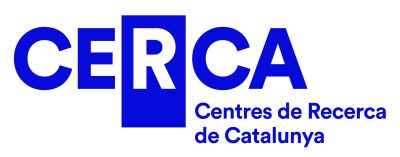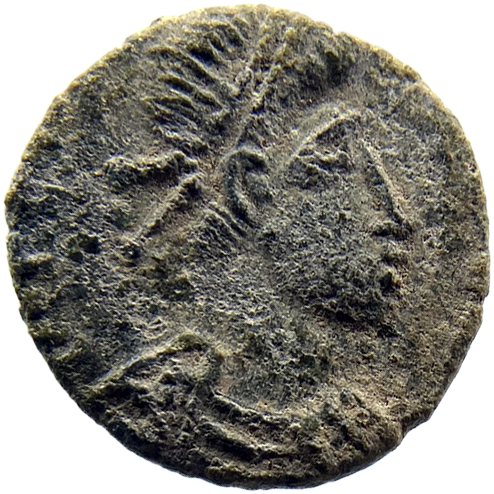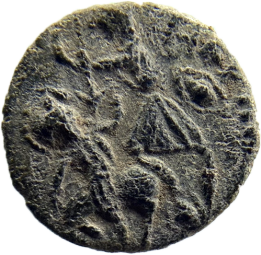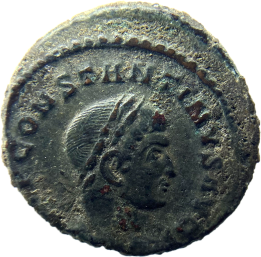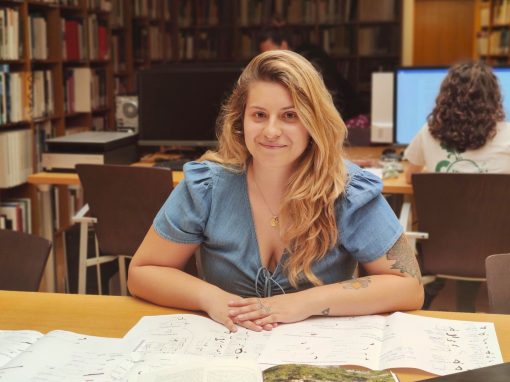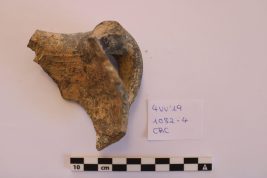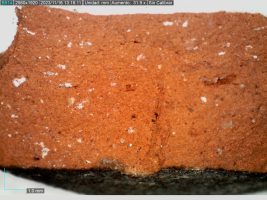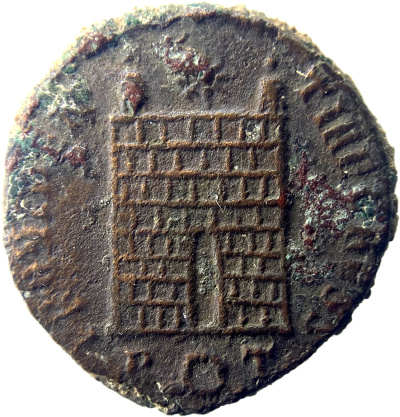
The Catalan Institute of Classical Archaeology (ICAC-CERCA) has established a new collaboration agreement with the Tortosa City Council. This initiative promises to boost knowledge about the city’s archaeological heritage significantly.
The new agreement will allow predoctoral researchers Òscar Caldés and Itziar Gutiérrez, from the Late Antiquity research team of the MIRMED research group, to access materials stored in the Tortosa Museum‘s warehouses as part of the development of their respective doctoral thesis projects.
A thesis project focused on numismatic study
Òscar Caldés began his doctoral thesis in 2022, with a project titled “¿Mantenimiento, decadencia o adaptación? Moneda y contexto arqueológico entre el Ebro y el Júcar durante la antigüedad tardía (c. 409 – 714 d. C.)” (“Maintenance, decline, or adaptation? Coinage and archaeological context between the Ebro and the Júcar during Late Antiquity (c. 409 – 714 AD)”), exploring the commercial dynamics in the Tortosa area during Late Antiquity.
His project is co-directed by Josep Maria Macias (ICAC-CERCA) and Ruth Pliego Vázquez (University of Seville) and focuses especially on numismatic study.
Caldés has been analyzing coins from city archaeological excavations and ancient collections for months. Thanks to the collaboration with the Tortosa Museum (Tortosa City Council), he will be able to deepen his study of coins found during the archaeological excavations of the Cathedral Square and Croera Street, carried out by the company Iber Arqueologia, Patrimoni i Turisme SL.
These pieces, amounting to a set of about 1,000 coins, form the largest pillar of Caldés‘ doctoral thesis and reveal significant commercial dynamics in Tortosa, especially during the 5th century AD, which are not seen, for example, in Tarragona.
A ceramological study in the regions of Tortosa and Valencia
Itziar Gutiérrez‘s thesis project is based on a detailed ceramological study of pottery from the Valencia and Tortosa areas, to systematize and analyze common pottery from the Late Antique period (6th – 7th centuries AD). This type of pottery — which includes pots, pans, mortars, and plates — has been little studied until now, despite its predominance and variety.
Gutiérrez recently joined ICAC-CERCA as a predoctoral researcher thanks to a Joan Oró grant (check the news here). Her thesis project is co-directed by Josep Maria Macias and Francesc Rodríguez, from the MIRMED research group of ICAC-CERCA.
The analysis corpus is based on materials found at the Visigothic site of Valencia “la Vella” (Riba-roja de Túria, Valencia) since the beginning of ICAC-CERCA excavations in 2016 and will also consider materials from older excavations in nearby locations such as Alcàsser and Bétera, as well as a set of pieces preserved in the Tortosa Museum.
Impact of the collaboration
El nuevo acuerdo formaliza el estudio de materiales numismáticos y ceramológicos conservados en el Museo de Tortosa
This agreement with the Tortosa City Council not only facilitates access to archaeological materials for young researchers but also strengthens the relationship between academic and local institutions, thus contributing to a better understanding of Tortosa’s historical past and its importance in the context of Late Antiquity.
Tenemos plena confianza en que la investigación de Òscar Caldés e Itziar Gutiérrez revelará nuevas perspectivas sobre las dinámicas comerciales y culturales de la región, enriqueciendo el patrimonio histórico de la ciudad de Tortosa y de la zona de Valencia.
We are confident that the research of Òscar Caldés and Itziar Gutiérrez will reveal new perspectives on the commercial and cultural dynamics of the region, enriching the historical heritage of the city of Tortosa and the Valencia area.
About the Catalan Institute of Classical Archaeology (ICAC-CERCA)
The Catalan Institute of Classical Archaeology (ICAC-CERCA) is a CERCA center established as a consortium in 2003 by the Government of Catalonia and the Rovira i Virgili University. It is a Catalan institution with an international scope, at the forefront of research and conservation of archaeological heritage. Its headquarters are in Tarragona, a city recognized as a UNESCO World Heritage Site in 2000. Its researchers work to understand the past through the study of archaeological remains and promote the preservation of the historical legacy. We are CERCA!
For more information, visit www.icac.cat.
